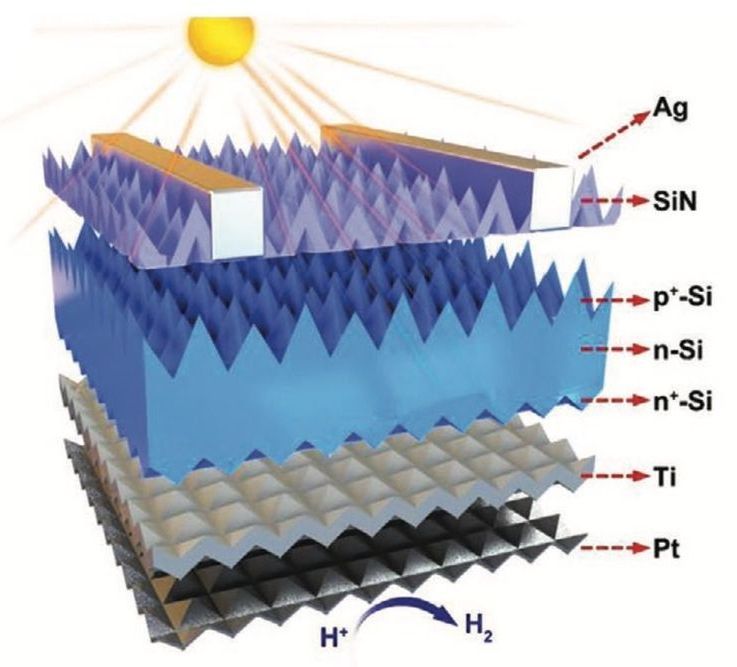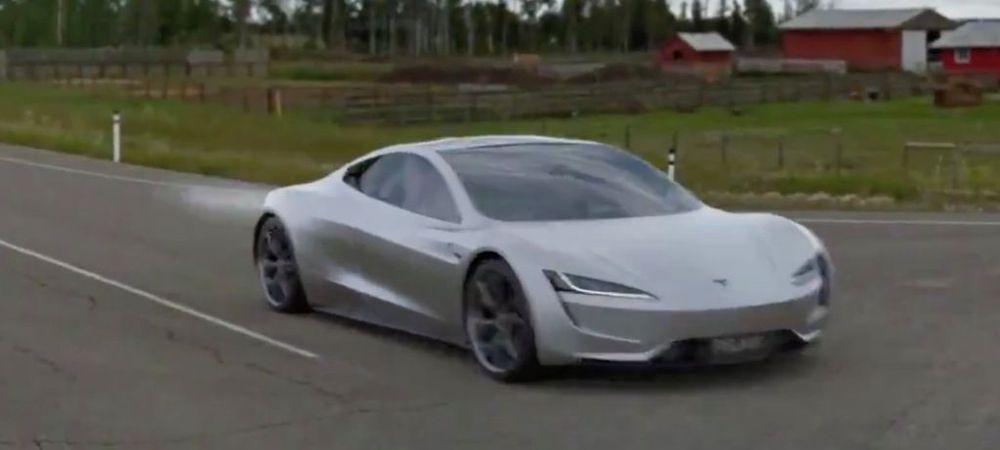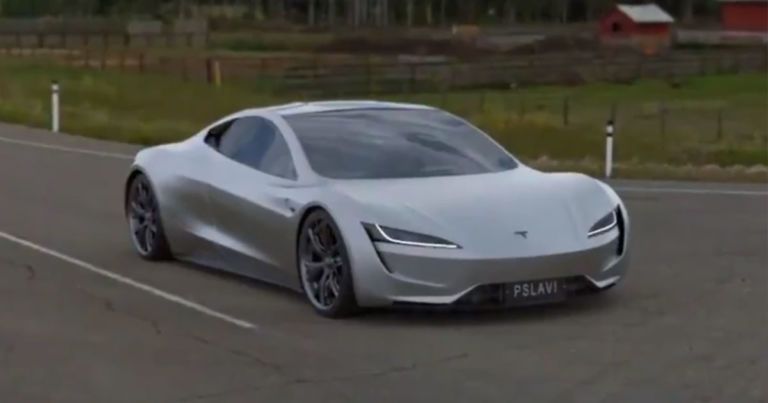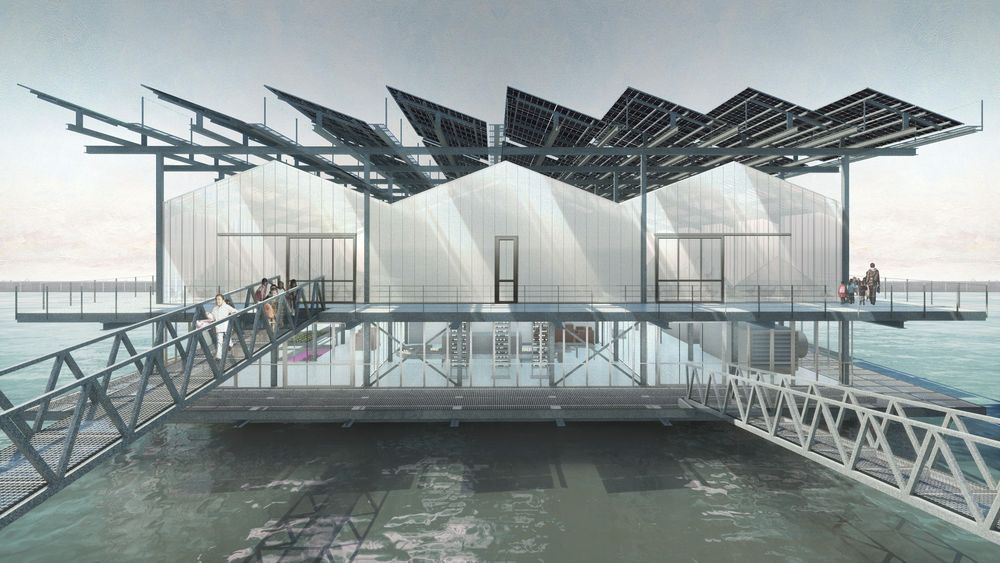Infrastructure will be installed at new drive-thrus “as standard.”



A team of astronomers from Harvard and other institutions are collaborating on a new project to scan the skies for technological signatures from alien civilizations.
It’s a noteworthy new project, as it’s the first to receive a NASA grant for SETI-specific research in more than 30 years, according to a statement.
“Technosignatures relate to signatures of advanced alien technologies similar to, or perhaps more sophisticated than, what we possess,” said Avi Loeb, the chair of the Harvard astronomy department Harvard, in a statement. “Such signatures might include industrial pollution of atmospheres, city lights, photovoltaic cells (solar panels), megastructures, or swarms of satellites.”

Farmers have enough worries—between bad weather, rising costs, and shifting market demands—without having to stress about the carbon footprint of their operations. But now a new set of projects by scientists at Lawrence Berkeley National Laboratory (Berkeley Lab), including scientists at the Joint BioEnergy Institute (JBEI), could make agriculture both more sustainable and more profitable.
The three projects, funded by the U.S. Department of Energy (DOE), leverage Berkeley Lab’s strengths in artificial intelligence, sensors, and ecological biology. They aim to quantify and reduce the carbon intensity of agriculture, including the farming of biofuel feedstocks such as corn, soy, and sorghum, while also increasing yield.
Crop-based biofuels have the potential to supply up to about 5% of U.S. energy demand, according to the DOE. Two of the new projects are part of the SMARTFARM program of DOE’s Advanced Research Projects Agency-Energy (ARPA-E). This initiative aspires to make the biofuel supply chain carbon negative—meaning it removes or sequesters more carbon than it emits—which would greatly improve biofuel’s benefits to the broader economy and environment. Scientists also hope that the increased productivity will have the effect of lowering costs and increasing farmers’ income.

Hydrogen’s impressive energy density offers some compelling advantages that could see it make a huge difference in the electric aviation and eVTOL sectors, as well as in renewable energy, where it’s a lightweight and transportable, if not particularly efficient, way to store clean energy that’s not necessarily generated where or when you need it. It’s also being pushed as a means of exporting green energy, and Japan and Korea in particular are investing heavily in the idea of a hydrogen energy economy powering everything from vehicles to homes and industry.
For this to come about in a globally positive way, it’s imperative that clean, green hydrogen production becomes cheaper, because right now, the easiest and cheapest ways to get yourself a tank full of hydrogen are things like steam reforming, which produces up to 12 times as much carbon dioxide as it does hydrogen by weight.
Green, renewable production methods are thus hot topics for researchers and industry, and a new breakthrough from scientists at the Australian National University (ANU) could make a significant contribution.

The nascent autonomous-vehicle industry is being reshaped by consolidation. Amazon, which committed to buying 100,000 Rivian electric vehicles, announced today that it is buying Zoox, the self-driving car tech start-up, for $1 billion. Ford and Volkswagen made multi-billion dollar investments in Argo. General Motors purchased Cruise Automation in 2016, while Hyundai is working with tier-one supplier Aptiv to deploy a robotaxi service in multiple global markets.
The tie-up between Waymo and Volvo (with its three brands all aggressive pursuing electric vehicles) could reshape the competitive landscape, although it’s too early to tell.
Google started its self-driving program more than a decade ago but paused the development of its own vehicle in 2016. A tight partnership between Waymo and Volvo to develop ground-up cars, if that’s what materializes, could put those plans back on track – this time with an established auto manufacturer known for high-quality production and safety.

Elon Musk is hinting at Tesla Cybertruck being virtually amphibious, and it’s not clear if he’s actually kidding.
Sometimes, Musk makes comments about future Tesla products and features that can be hard to judge.
For example, it was hard to tell if he was kidding when he said that the next Tesla Roadster would be equipped with a cold air thruster, but that’s apparently happening.

Taking a cross-country roadtrip in your electric vehicle is a little more feasible thanks to Electrify America. Its first coast to coast EV fast charging route is now complete, and the company plans to have another route finished by September. The routes provide high-powered chargers to all EV brands, and on average, the stations are spaced about 70 miles apart, so EV owners can travel beyond a single charge without being stranded.
The first route stretches over 2,700 miles from Washington DC to Los Angeles. It follows Interstates 15 and 70 and passes through 11 states. The second route will connect Jacksonville and San Diego.

What does a 1.1-sec, 0–60 mph acceleration even look like? A graphic artist tried to visualize what a Tesla Roadster with SpaceX thruster looks like when accelerating in 1.1 seconds.
When first unveiling the vehicle, Tesla claimed a list of insanely impressive specs for the new Roadster, including 0–60 mph in 1.9 sec, 620 miles of range, and more.
However, the CEO quickly added that the insane specs announced in 2017 for the new electric hypercars are only “the base specs.”


We’ve reported on several eye-catching floating architecture projects lately, including a “parkipelago” and a greenery-covered office. This solar-powered urban poultry farm is the most off-the-wall idea of the bunch though and, assuming it goes ahead as planned, will host roughly 7,000 egg-laying hens, as well as an area for growing food, in a harbor in Rotterdam, the Netherlands.
The building is officially named Floating Farm Poultry and was designed by Goldsmith for a company named Floating Farm Holding BV.
It will be based on a floating platform with three pontoons and will measure 3,500 sq m (roughly 37,670 sq ft), spread over three floors. Its interior layout will consist of a lower level used for farming vegetables, herbs and cresses under LED lighting, while upstairs will be a production factory floor for processing and packaging. The uppermost level is conceived as the poultry area and will contain the egg-laying hens.